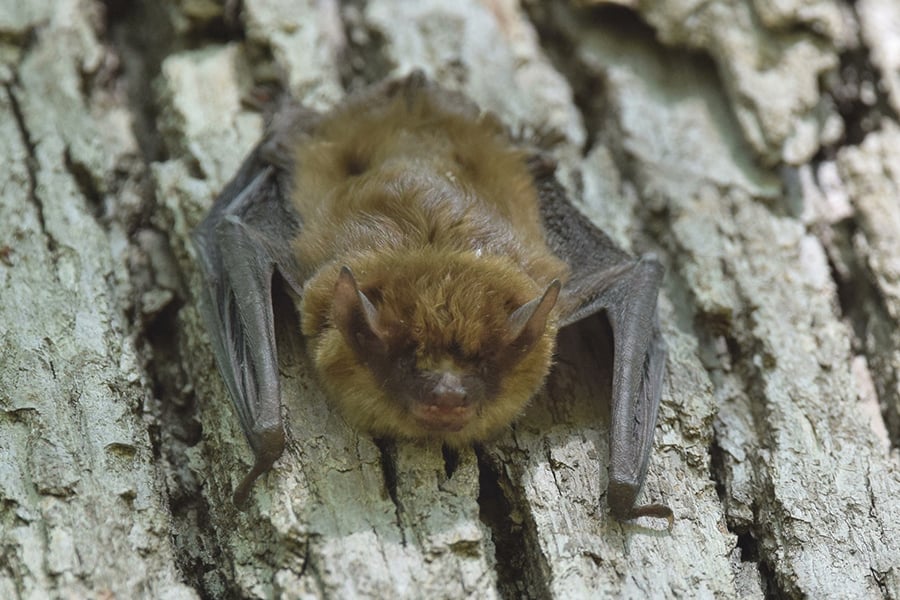Living With Bats
This page provides information on bat-related problems and ways to make your home less attractive to bats in the first place.

A Bat in Your House
How to Make Your Home Less Attractive
- Seal exterior openings larger than half an inch with caulk, expandable foam, plywood, mortar, metal flashing, steel wool or quarter-inch mesh.
- Make sure all doors, windows and screens close properly.
- Put a bright light in your attic at night. Step outside, look for places where the light’s escaping and seal those locations during the day.
- Repair broken, weak or rotted sections of your roof, soffit and fascia.
- Install and maintain chimney caps.
- Place welded wire inside attic vents to block access if the covers are removed.
- Use welded wire to block access to areas under decks, sheds, patios and porches.
What You Should Never Do
- Bats can carry rabies; never handle one.
- Trapping and removing an animal is not always the solution to the problem. Removing the animal is illegal without the proper permits and only creates an open space for another animal to inhabit. A trapped adult may also leave young behind to die of starvation. Focus on removing the attraction, not the animal.
- Never move young from a roost.
- Never use poisons. They’re inhumane and may be illegal. They can also result in secondary poisoning of other wild animals or pets.
- It’s illegal to keep wild animals, even for a short time. They have special nutritional, housing and handling needs, and inexperienced individuals who try to raise or treat them inevitably produce unhealthy, tame animals that can’t survive in the wild.
Public Health Concerns
Only 3 to 5 percent of tested bats have rabies, but because the disease is so severe, if a bat is in your home or if you come in contact with one, call your local animal-control office for assistance and report the incident to DuPage County Animal Care and Control at 630-407-2800. Depending on the circumstances, health officials may need to test the bat and may recommend postexposure vaccines, which are given in the arm like a flu shot.
Bats are also associated with Histoplasma capsulatum, a fungus that grows in areas with lots of bat droppings. People who inhale its spores can get histoplasmosis, a lung disease, but severe cases are rare. Removing accumulated bat droppings requires personal protective equipment, and only experienced professionals should remove large deposits.